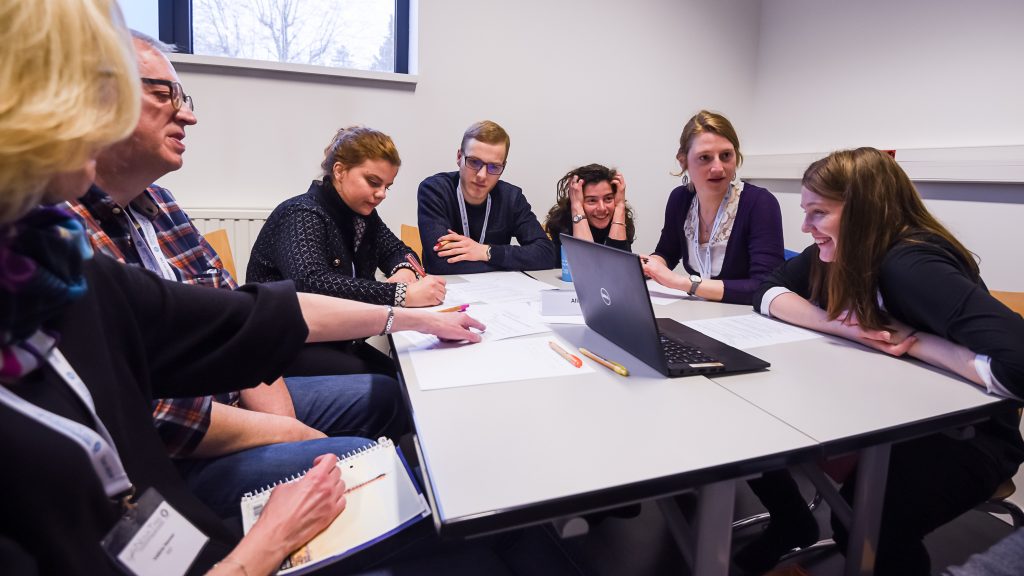NovaTris Pedagogy
The intercultural approach, often confused with a cultural or multicultural approach, puts the emphasis on the processes and interactions that unite and define individuals and groups in respect of each other. It is a question of looking beyond the characteristics ascribed to others to develop critical awareness of one’s social reality. The work on analysis and knowledge is as much about others as oneself.
NovaTris develops and practises a teaching methodology based on intercultural assistance and support which are fully in line with the Eucor – The European Campus‘ commitment to tri-national cooperation and the European University EPICUR. The aim of this approach is firstly to enable the learner (student, teacher, employee, entrepreneur, etc.) to acquire and develop the intercultural skills and experience needed to feel comfortable an intercultural environment.
The support and assistance offered does not therefore consist of a transfer of “turnkey” skills. On the contrary, the methodology can be thought of as a mirror held up to the learner to allow them to reflect on their experience and build it into a range of personalised skills. Reflection on and feedback to oneself form a basic component of any education: formalising an experience helps one to understand it and transform it into knowledge-based experience. Each learner will then be capable of continuing to build up these intercultural skills for themselves in ways that are suited to their own intercultural environment.
Intercultural Skills
The Centre sees intercultural skills as a dynamic ensemble of social, interpersonal, methodological skills and so on, which, when combined, make it possible to act in an intercultural context. They are made up of:
- Attitudes and values
- The ability to act / interact constructively: in terms of (inter)cultural communication and knowledge, etc.
- The ability to reflect: self-knowledge, perspective, critical consciousness, situational awareness, etc.
NovaTris’ teaching methodology for intercultural support makes the most of the Université de Haute-Alsace‘s tri-national geographical position (France, Germany and Switzerland). It provides a learning environment for any learner who finds themselves, on a daily basis, in intercultural situations in the broad sense (international, interprofessional, interdisciplinary, etc.) It aims to guide them towards twofold independence:
- Independence of action : the abilities, knowledge, know-how and interpersonal skills acquired in the course of their studies at NovaTris enable them to grasp the intercultural situations that they find themselves in, with greater confidence and understanding;
- Independence of method : progressively, they assimilate the method of structuring and building experiential knowledge that they have developed during their education at NovaTris.
Photo credit : Victoria Harster

